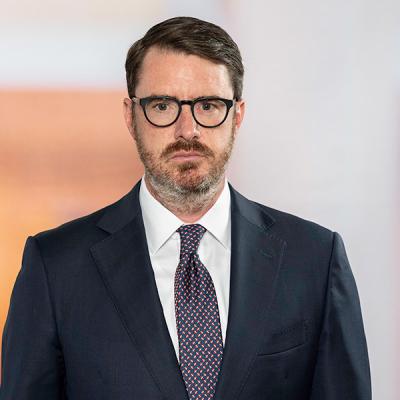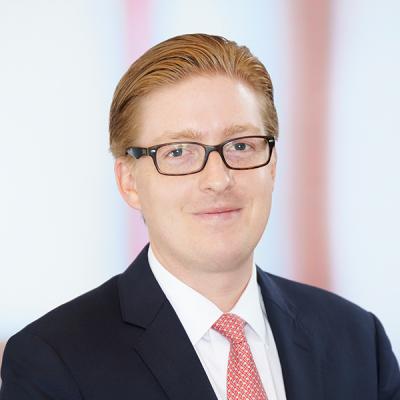Health Care Enforcement Kept the DOJ Fraud Section Busy in 2020
On February 24, 2021, DOJ’s Criminal Division Fraud Section published its annual year-end summary (available here). The Fraud Section focuses on prosecuting white-collar crime. The report summarizes enforcement activity in the past year and discusses notable cases from the Fraud Section’s three litigation units: (1) the Health Care Fraud (HCF) Unit; (2) the Foreign Corrupt Practices Act (FCPA) Unit; and (3) the Market Integrity and Major Frauds (MIMF) Unit. In summarizing the Fraud Section’s main achievements from 2020, the report also provides valuable insights on what lies ahead for the Fraud Section in 2021. This post focuses on the health care enforcement portion of the Fraud Section’s report.
Nearly half of the Fraud Section’s prosecutors are assigned to the Health Care Fraud Unit. The HCF Unit’s mission is twofold: to protect federal health care programs, by preventing fraud and abuse; and to protect patients, by preventing offenses related to opioids and other drugs. In 2020, those goals translated into three main enforcement priorities: (1) opioids; (2) telemedicine; and (3) COVID-19 related fraud. The report also provides a statistical summary of the HCF Unit’s activity in these areas.
Big Data and Big Cases
The report’s 2020 enforcement statistics present a clear message: the HCF Unit is targeting individuals involved in high value, complex fraudulent schemes. In 2020, the overall number of individuals charged by the HCF Unit declined (from 344 in 2019 to 167 in 2020). However, the average loss per individual charged nearly doubled (from $11.9 million in 2019 to $22.6 million in 2020). And, despite charging fewer cases, total alleged losses were nearly constant (from $4.11 billion in 2019 to $3.77 billion in 2020).
Three observations are noteworthy. First, the decreased number of individuals charged is likely a result of COVID-19—since courts were closed and grand juries were suspended, or very limited, for much of the first half of 2020. Second, the HCF Unit focused on higher value individual cases. DOJ is marshaling data analytics to “identify aberrant billing levels and target suspicious billing patterns.” Third, in contrast to other Fraud Section Units, and local U.S. Attorneys’ Offices around the country, the Fraud Section’s HCF Unit reported no corporate resolutions in 2020.
Many of cases charged by the HCF Unit in 2020 were announced as part of the 2020 National Health Care Fraud and Opioid Takedown (which we previously discussed here). The Takedown included over $4 billion in telemedicine charges, more than $845 million in “sober homes” charges, and more than $806 million in charges related to opioid prescription and distribution schemes.
Opioids
Opioid enforcement remains one of the HCF Unit’s highest priorities. The report specifically highlights the work of the Appalachian Regional Prescription Opioid Strike Force, which targets medical professionals and others involved in the prescription and distribution of opioids in the Appalachian region, an area particularly hard-hit by the opioid epidemic. Since 2019, the Strike Force has brought unlawful distribution charges against 65 licensed medical professionals. These charges typically involve alleged conduct far outside the bounds of professional medical care: opioid prescriptions in excessive amounts, dangerous combinations, or in exchange for cash or other services.
The Sober Homes Initiative is a new angle on opioid enforcement. That coordinated enforcement effort focuses on fraud schemes in the substance abuse treatment industry. Charges in this area involve bribes or kickbacks paid to patient recruiters, who target patients with private insurance, and draw those patients into the treatment facility. In these schemes, the recruiters allegedly provide opioids to patients (to ensure the patients qualify for the highest level of treatment), move patients between multiple facilities (to maximize their kickbacks), and even provide additional illegal drugs between program admissions (to destabilize the patient’s recovery).
Telemedicine
The HCF Unit started targeting telemedicine fraud back in 2019, but since the onset of the COVID-19 pandemic, demand for telemedicine services has surged, and enforcement has followed closely behind. The 2020 Takedown, for example, charged 80 defendants involved in telemedicine fraud, resulting in over $4 billion in false and fraudulent claims.
In these schemes, companies offering telemedicine services allegedly pay or provide kickbacks to treatment providers. In exchange, the treatment providers allegedly order some type of medically unnecessary treatment. This could include durable medical equipment (e.g., wheelchairs or nebulizers), diagnostic testing, or prescriptions for pain medications. Common to these schemes, the interaction between treatment provider and patient is either non-existent or minimal.
We expect telemedicine fraud enforcement will evolve and expand in a post-COVID world, based on two factors. First, reimbursement for telemedicine services has become much more widely available since March 2020. And second, during that same timeframe, provider-patient interactions have been almost entirely virtual.
COVID-19 Related Enforcement
COVID-19 related enforcement was the surprise of 2020. Continued enforcement in this area in 2021 (and beyond) should surprise no one. In the report, the HCF Unit states it will focus on prosecuting COVID-19 related fraud in three areas: (1) test bundling schemes; (2) health care technology securities fraud; and (3) Health Resources and Services Administration fraud (which is the agency managing provider reimbursement for COVID-19 testing and visits for uninsured patients).
The report discusses two cases that may represent the tip of the iceberg in COVID-19 related health care fraud. United States v. Mark Schena was the first criminal securities fraud prosecution related to COVID-19 (which we previously analyzed here). In that case, Schena allegedly promoted a medically unnecessary allergy test along with a COVID-19 test that allegedly failed to meet FDA standards. Schena is awaiting trial.
The second case, United States v. Ashley Hoobler Parris, involved a test bundling scheme whereby Respiratory Pathogen Panel tests (which do not test for COVID-19) were submitted along with COVID-19 tests for Medicare reimbursement, for the sole purpose of increasing reimbursement rates. In November 2020, Parris pleaded guilty to one count of conspiracy to commit health care fraud.
Conclusion
In 2020, the Fraud Section’s Health Care Fraud Unit focused on prosecuting individuals involved in opioids, telemedicine, and COVID-19 related fraud schemes. DOJ’s use of data analytics was a key aspect of the HCF Unit’s ability to target more complex, higher value fraudulent schemes than in years past. We expect these enforcement trends will continue in 2021. For a more in-depth analysis of health care enforcement trends over the past year, and our perspective on what is to come in 2021, we refer readers to our Health Care Enforcement 2020 Year in Review & 2021 Outlook.




